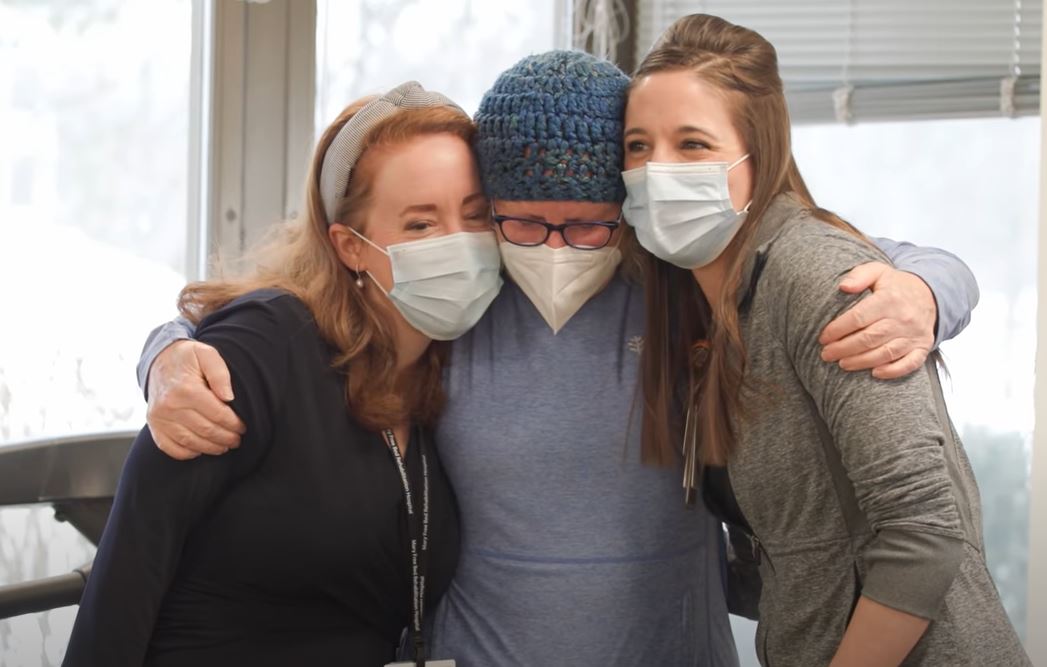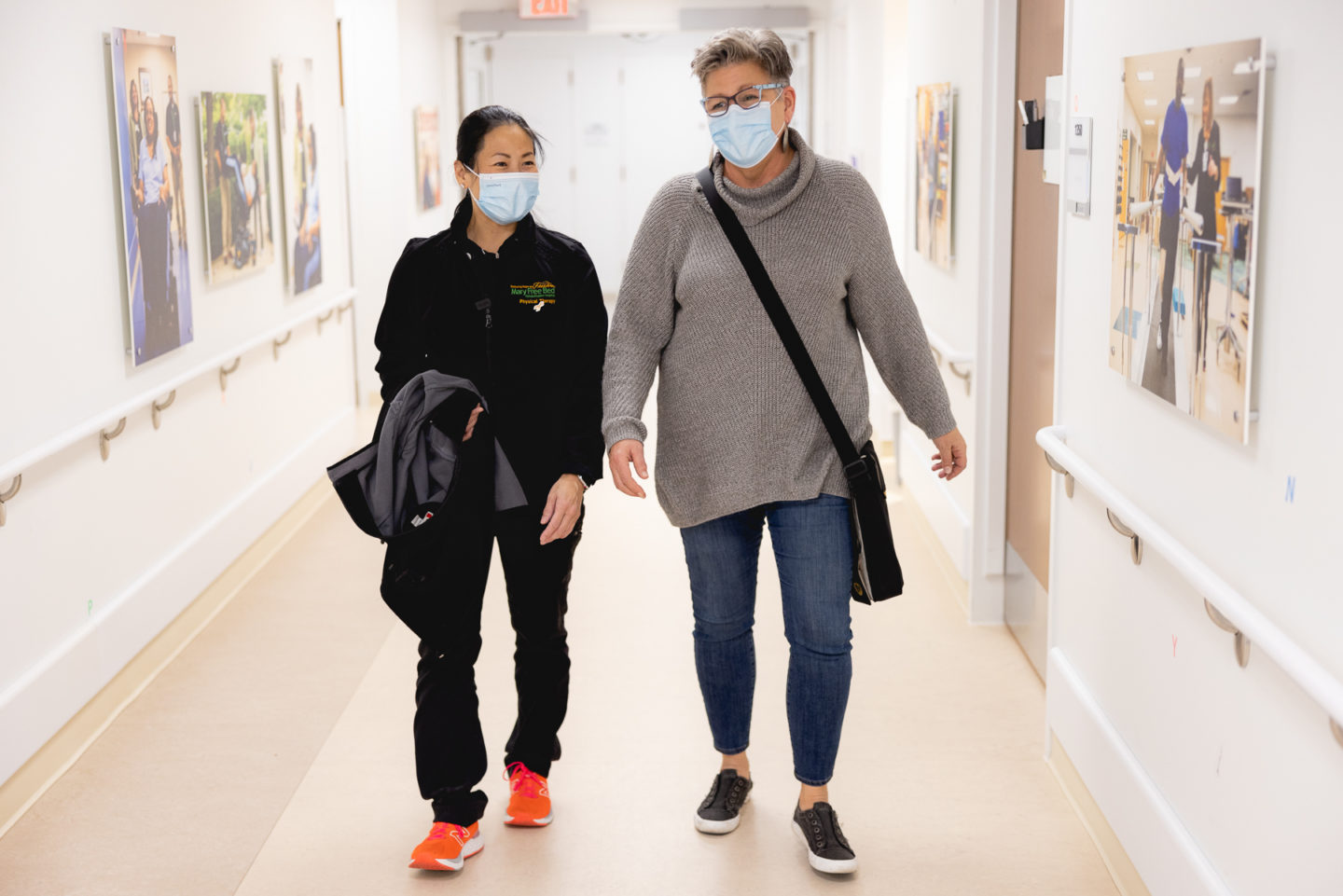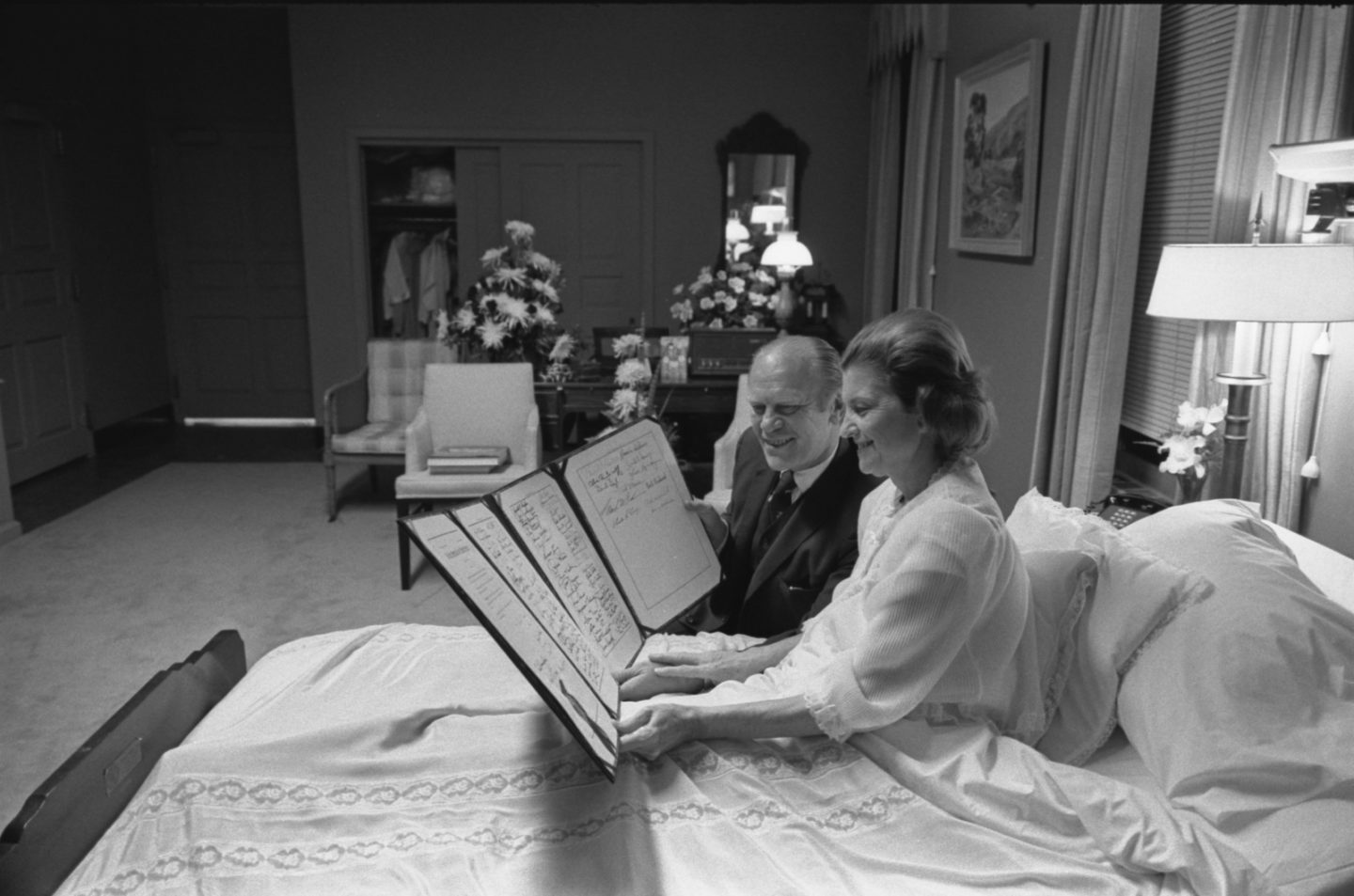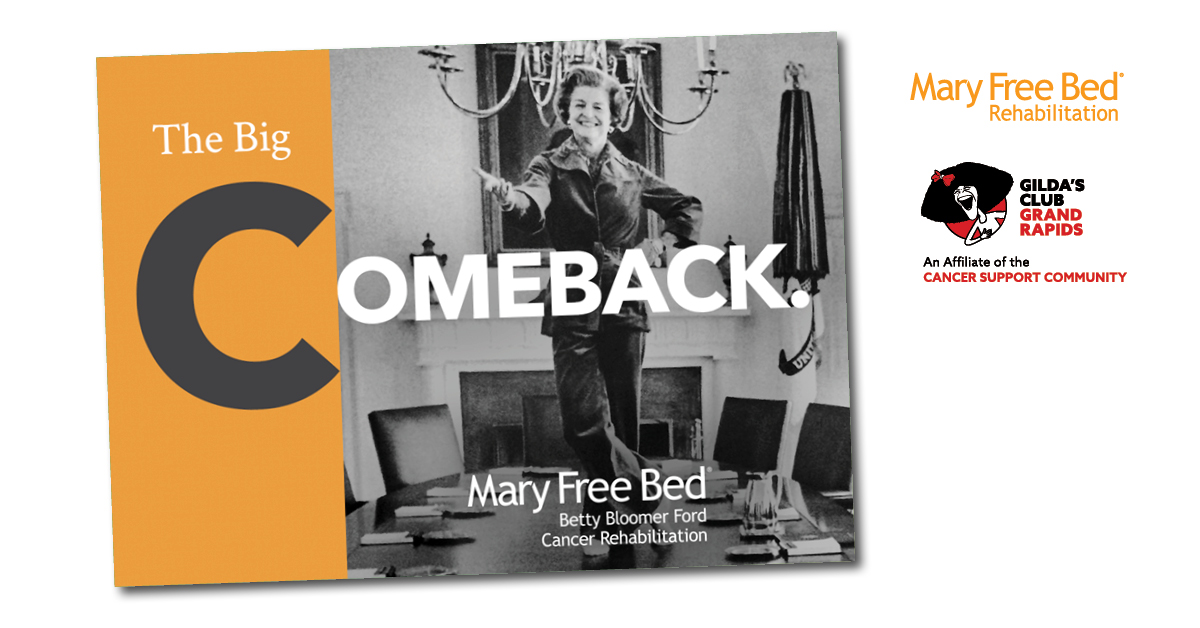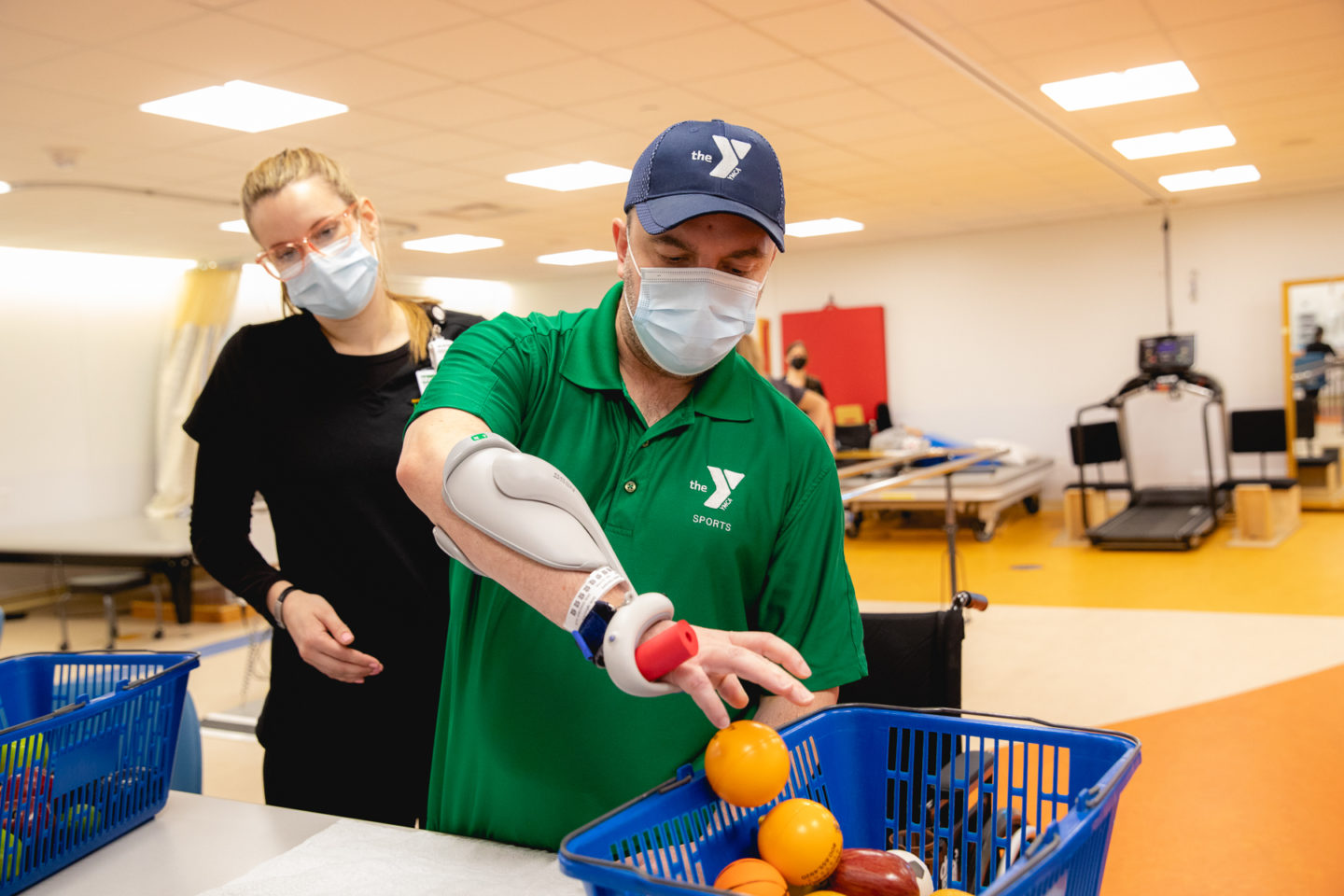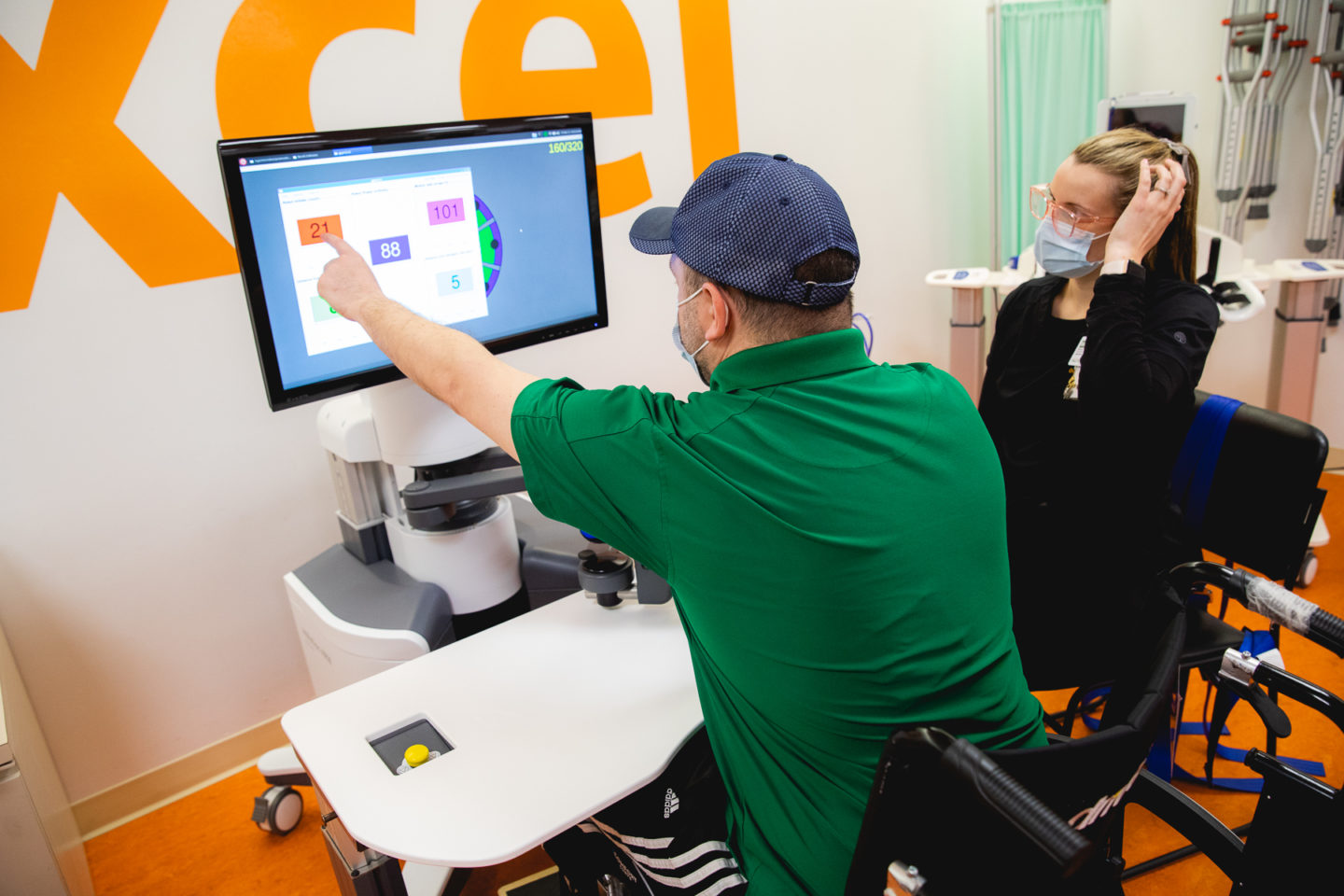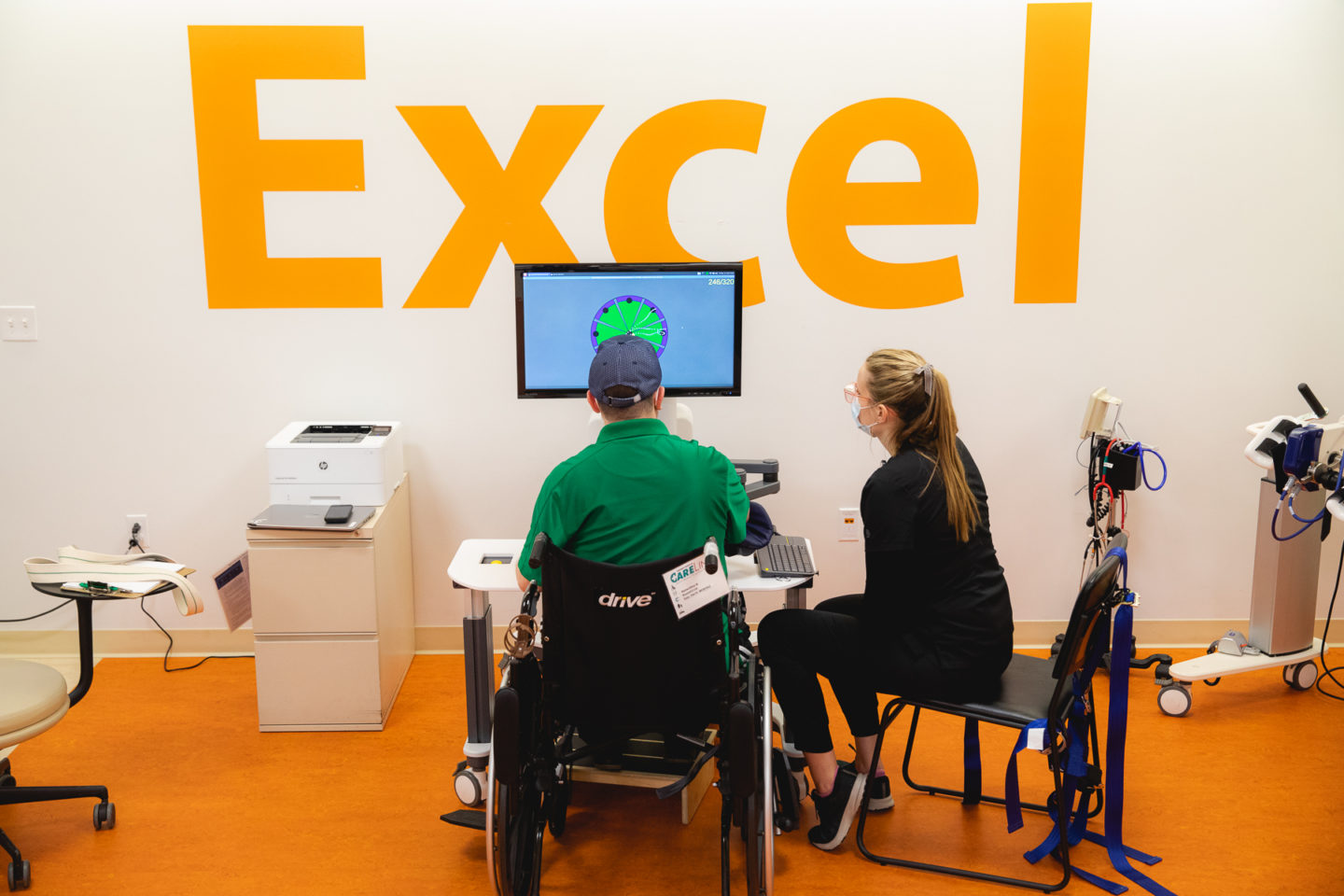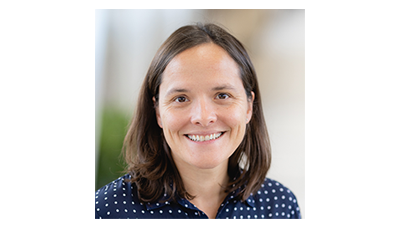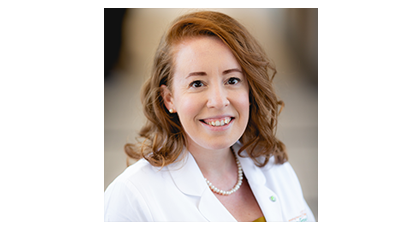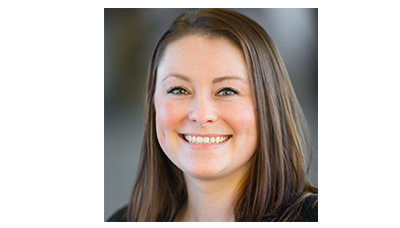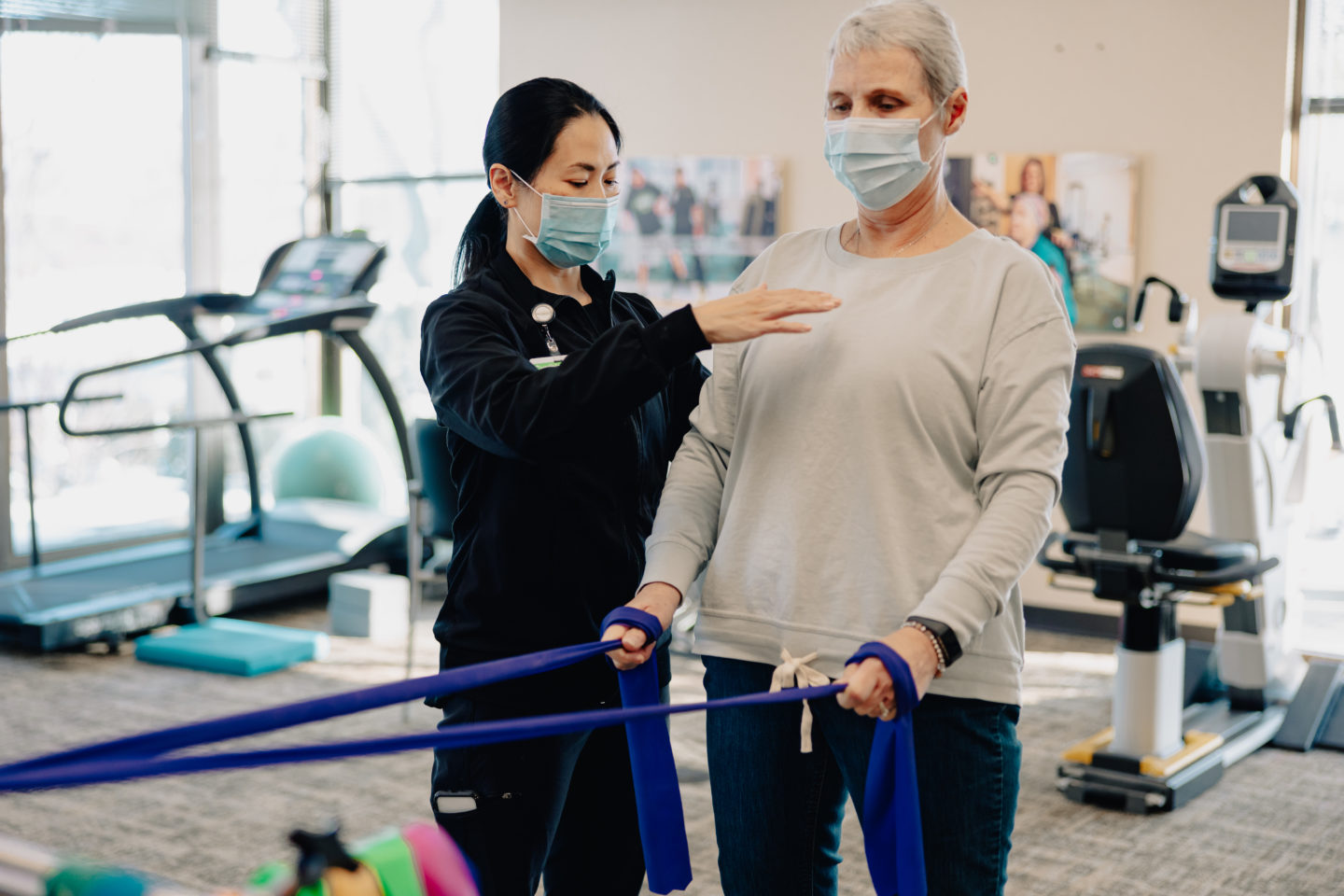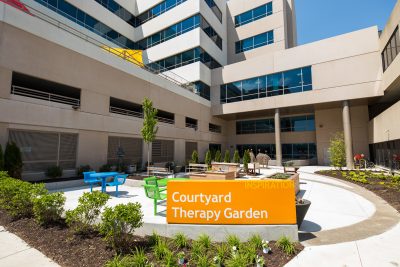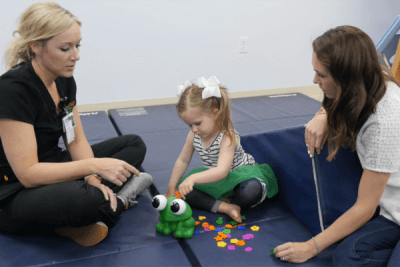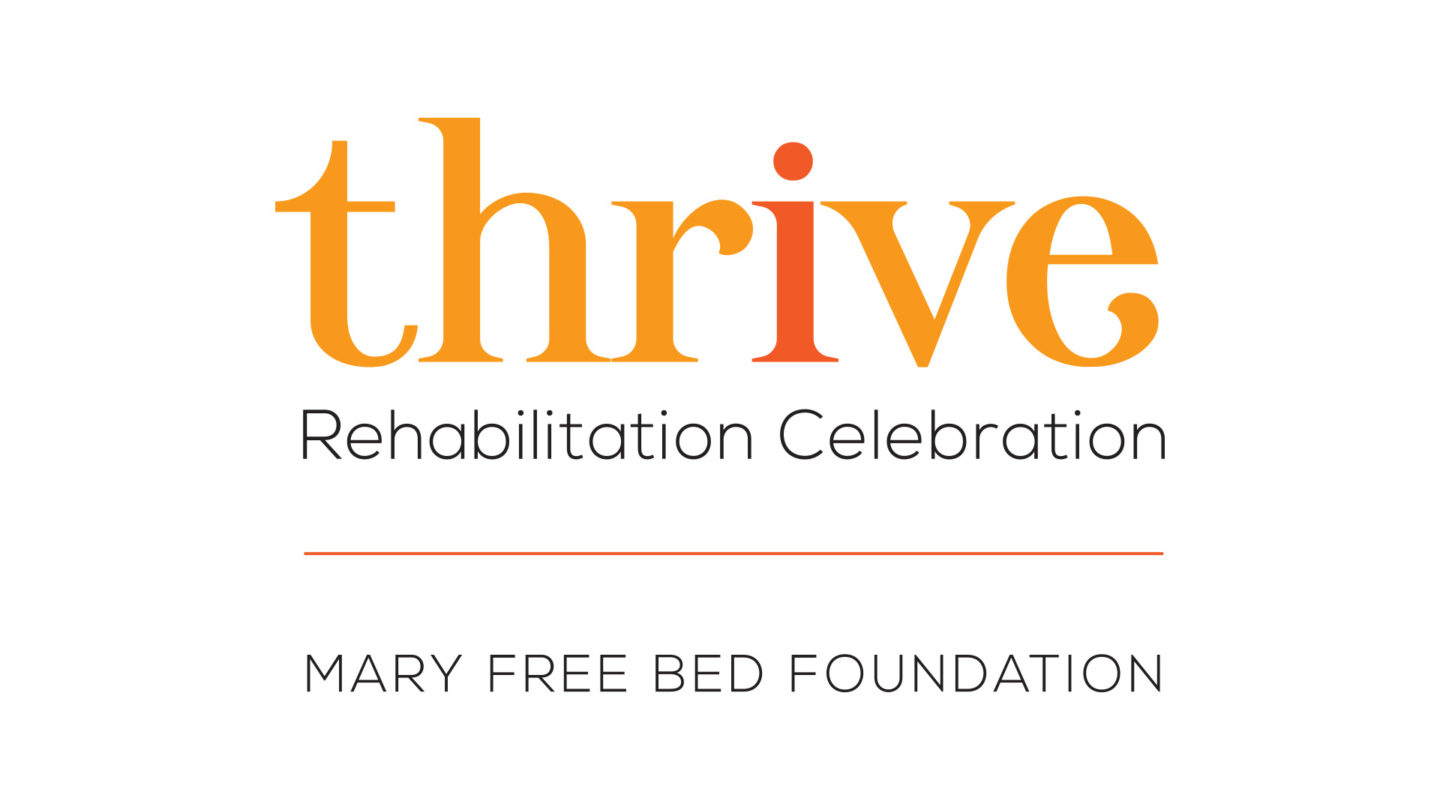Mary Free Bed provides a full spectrum of care, including specialized therapy, home and community services and life-long follow-up care.
We create a path to manage the physical, cognitive and emotional impairments that can come with cancer and its treatments. Our outpatient services are available either after you graduate from our inpatient program or as a new patient to Mary Free Bed. We also offer a home and community program.
You’ll participate in a thorough evaluation and assessment in a clinic setting. Our cancer rehabilitation team meets weekly to discuss the needs of each patient in the program, which will help your team members stay on top of any changes and adjust your treatment as needed.
We understand it can be exhausting to attend multiple medical appointments, so we schedule appointments in blocks out of respect for your time and energy. All of your therapies will be scheduled in either morning or afternoon sessions. We also offer you the opportunity to coordinate your therapy appointments with your other medical appointments and personal schedule.
